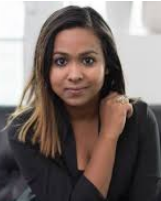- Home
- About Us
- The Team / Contact Us
- Books and Resources
- Privacy Policy
- Nonprofit Employer of Choice Award

 No doubt you’ve read somewhere that family status or type is a strong predictor of the likelihood of an individual or family including a charity in their will. Evidence of this is readily available, from research by Dr. Russell James to a great number of articles and blog posts online.
No doubt you’ve read somewhere that family status or type is a strong predictor of the likelihood of an individual or family including a charity in their will. Evidence of this is readily available, from research by Dr. Russell James to a great number of articles and blog posts online.
It makes sense that parents want their children to inherit their wealth. James's study looking at data from a health and retirement study over the course of 15 plus years in the U.S. shows that as of 2010, the likelihood of leaving a charitable gift in a will were as follows:
It follows that in recent decades, childlessness rates have also increased (a trend that has been studied particularly among women). A statistic you may already know is that women born in 1965 were twice as likely to not have children as those born in 1945, partly as a result of more women seizing new opportunities for education and careers.
So what does this all mean?
There is an uptick in childlessness rates in developed countries.
Childlessness is a factor in the inclusion of charitable gifts in wills.
The 2016 Planned Giving Study by Pentera analysing data based on planned gifts from 1972 to 2015 adds other key findings on how family type affects giving. It shows that donors without children make larger planned gifts. In fact, gifts from childless donors are more than double, as donors with children tend to leave the bulk of their estates to their offspring.
If nothing else, this is a reminder that it is important to invest in your planned giving program. With the increased rate of childlessness, there is an opportunity to connect with prospective donors about leaving a gift to your charity. If you are looking to grow your program, it may be time to start learning more about the family status of your donors, and looking for ways to segment your database.
Mimosa Kabir is the Officer, Events & Creative Partnerships at War Child Canada. She is an aspiring changemaker, interested in fostering collaboration, consensus and community within the nonprofit sector for collective impact to address the complex challenges facing our communities and industries. She firmly believes that we are stronger together.